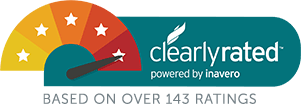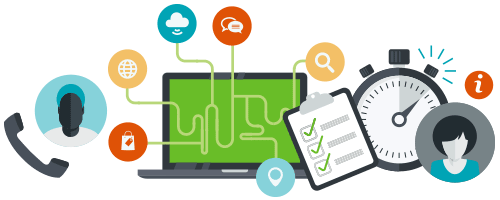Great managers understand that successfully growing a small business requires several key objectives be set and completed. Of course, a healthy client base and a service or product that people want are integral. But, with a bigger business comes bigger demands, and to continue your streak of success you’ll need to attract and retain qualified talent.
But how do you find good employees? One of the biggest ways to make your business stand out is by offering a fantastic benefits package. This typically includes health insurance and a few tax-advantaged accounts, like FSAs and HSAs.
Unfamiliar with FSAs and HSAs? Read below to learn more.
What is an FSA?
An FSA is a flexible spending account.
People who enroll in an FSA have a certain amount of money deducted from their paycheck on a pre-tax basis. That money is rolled into the FSA, which they can then use to help pay eligible medical expenses throughout the year.
An FSA is owned by the employer. This means that if the employee leaves their job, they do not get a refund for any money in their FSA that they have not used. In addition, if the employee does not use all of the money in their FSA during the calendar year, then the money is lost.
Employees can contribute up to $2,750 per year toward their FSA. Once an employee sets their deduction amount, they cannot go back and change it.
What is an HSA?
An HSA is a health savings account.
In order to qualify for an HSA, an employee must have a health insurance plan with a high deductible. Like with an FSA, HSA holders have a certain amount of money withheld from their paychecks on a pre-tax basis to use on eligible medical expenses. That’s where the similarities end, however.
HSAs are owned by the employee, so all of the money added to an HSA stays in the account and continues to build throughout the years. The employee also retains the account if they leave their job, and the employee can earn non-taxable interest on the money in the HSA.
Single employees can contribute up to $3,600 per year to an HSA. Employees with a spouse or dependents can contribute up to $7,200 per year. Employees may change the amount of their deduction at any time.
So, which is better for your business and employees?
There’s no definitive answer to this question.
Both FSAs and HSAs have great advantages, depending on your specific circumstances. FSAs are available to all employees and aren’t tied to a deductible requirement. HSAs can help employees pay for medical expenses throughout their lives, but you can’t open an account unless you meet the requirements.
It’s going to come down to the type of insurance you offer, if any, and the associated deductible. Some employers find that it’s better to offer both plans to accommodate all employees.
Ready to learn more about tax-advantaged accounts?
Tax-advantaged accounts like FSAs and HSAs are a valuable addition to any compensation package. When it comes down to it, however, there is no one-size-fits-all answer to the question of which plan to offer. Instead, consider offering both plans to your employees and allowing them to determine which plan fits their needs.
FSAs and HSAs are just the tip of the iceberg when it comes to managing employees and the benefits your business offers them. As a busy business owner, you might be looking for someone who can help you with the task. Contact Worklogic HR today to learn how we can make your job a little easier.








